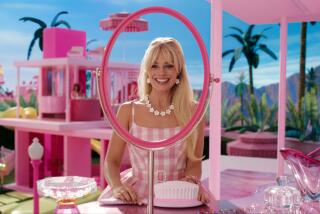Shaming Won’t Help Overweight Kids
- Share via
In response to “Too Much of a Good Thing,” by Greg Critser, Opinion, July 22: For the past 15 years I have served as the medical director of the KidShape program, a family-based pediatric weight-management program that has treated thousands of children ages 6 to 14. KidShape is offered both in English and in Spanish and is available for children and families who are recipients of Medi-Cal, are in Healthy Families or are private payers. KidShape teaches children and their parents the basics of nutrition, including proper portions. Additionally, we emphasize daily exercise, reducing television viewing and improving parent-child communication skills.
Despite the necessity to change behaviors of overweight children, I have mixed feelings regarding whether stigmatization is “good,” or even effective. Certainly, most children who attend our program do so not because they are overweight, or even because they have a medical condition such as high blood pressure, but rather because they are being unmercifully teased by peers, siblings and even teachers and other adults. This teasing and snubbing is obviously helpful in getting them in the door, but is it useful or even beneficial in promoting their participation? I think not, because the low self-image, self-worth and depression that accompany this teasing do little to help them to eat better and lose weight--both of which require self-discipline and self-respect. Shame is not effective in limiting the food intake by severely obese individuals, who turn to food as a source of comfort from such stresses as shame and depression.
Naomi Neufeld MD
Los Angeles
*
The recommendation that young children be expected to make it through the day on three meals with no snacks is laughable to anyone who has raised children. Telling a hungry child that he or she can’t have any more food is not a workable solution.
Critser missed the main problem, although he alluded to it obliquely: It’s not how much kids eat; it’s what they eat. High-salt, high-fat, high-sugar foods inspire even lab animals to overeat. Although it may be true, as was shown in the study Critser cited, that 5-year-olds can’t tell when they are full if they are eating macaroni and cheese, I have yet to meet a 5-year-old who can’t tell when he or she is full when eating brown rice.
If parents are supported in offering more healthful foods, children will naturally eat reasonable quantities. One look at children’s TV and the types of foods advertised will demonstrate why this is such a difficult task for parents.
Lucy Deckard
Los Angeles


